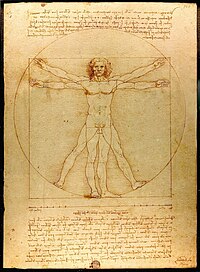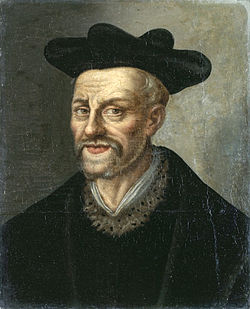Humanism in France
| Part of a series on |
| Humanism |
|---|
 |
| Philosophy portal |

Humanism in France found its way from Italy, but did not become a distinct movement until the 16th century was well on its way.
History
On the completion of the
Guarino of Verona and other Italians. Gaguin copied and corrected Suetonius in 1468 and other Latin authors. Poggio Bracciolini's jest book and some of Valla's writings were translated into French. In the reign of Louis XI
, who gloried in the title "the first Christian king", French poets celebrated his deeds. The homage of royalty took in part the place among the literary men of France that the cult of antiquity occupied in Italy.
Vatable, published the Greek grammar of Manuel Chrysoloras. Budaeus, perhaps the foremost Greek scholar of his day, founded the Collège Royal, 1530, and finally induced Francis I to provide for instruction in Biblical Hebrew and Greek. The University of Paris at the close of the 14th century was sunk into a low condition and Erasmus bitterly complained of the food, the morals and the intellectual standards of the Collège de Montaigu which he attended. Budaeus urged the combination of the study of the Scriptures with the study of the classics and exclaimed of the Gospel of John
, "What is it, if not the almost perfect sanctuary of the truth!"
Strassburg and then to the liberal court of Marguerite de Navarre
.
Among those who came into contact with Lefèvre were
Maturin Cordier and Pierre de L'Estoile, the canonists, and Melchior Wolmar
, teacher of Greek, whose names the future Reformer records with gratitude and respect.
See also
References
- Philip Schaff History of the Christian Church, Volume VI, 1882
- (in French) La Renaissance artistique et humaniste en France
Further reading
- Tzvetan Todorov. The Imperfect Garden: The Legacy of Humanism. Princeton University Press. 2001. (text which focuses on the main views of French humanism)
